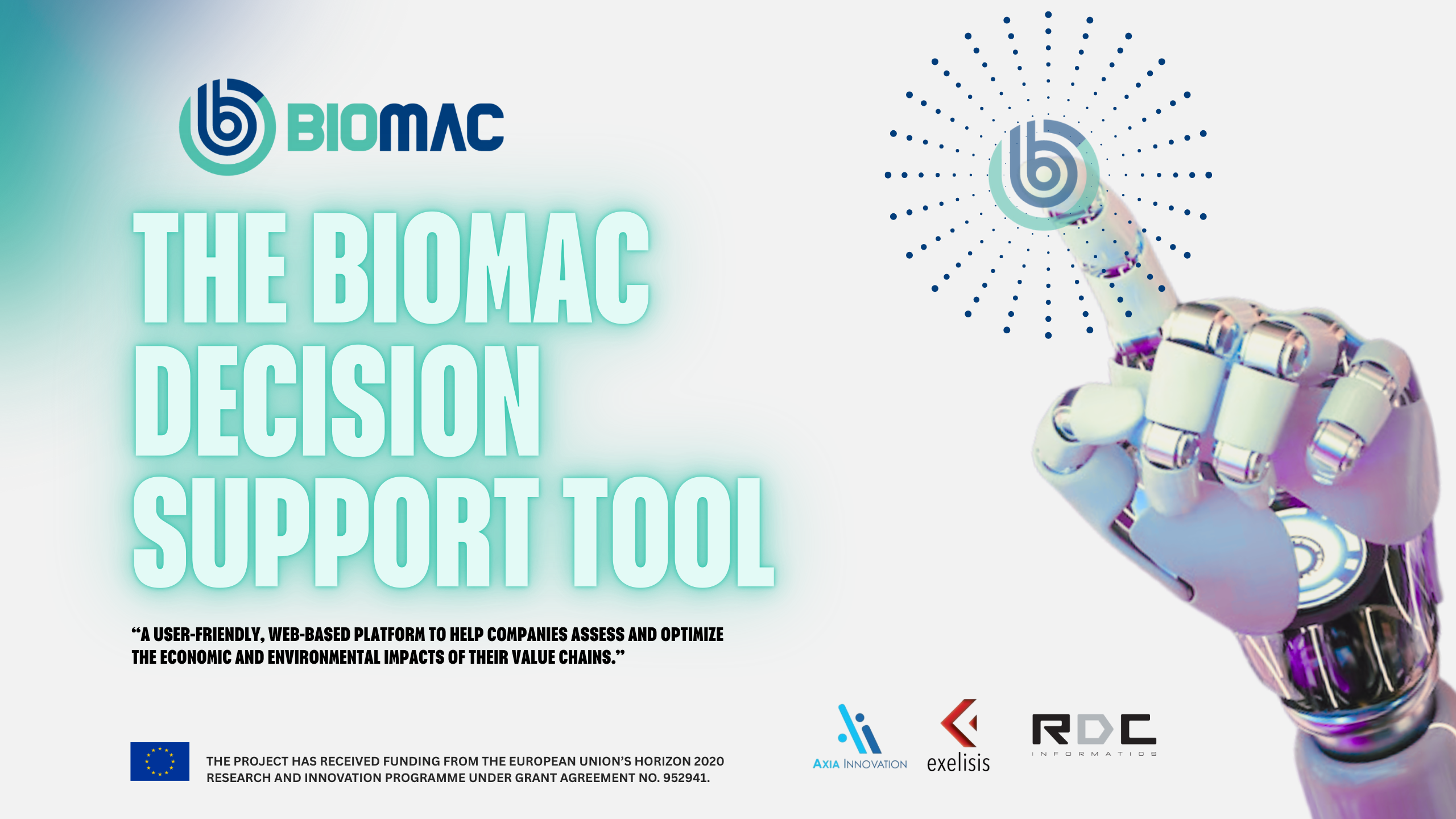
BIOMAC OITB Final Review: Progress in Sustainable Nanomaterials, Decision Support Tools, and Circular Economy Solutions
The final meeting of the BIOMAC project took place on July 3rd and 4th in Edinburgh, Scotland. The main goal of BIOMAC is to establish a self-sustaining Open Innovation Test Bed (OITB) ecosystem to support the scale-up of Nanostructured Bio-based Materials (NBM) towards market readiness and production.
This meeting reviewed the project’s progress over the last 18 months, covering both the internal Test Cases and the external Test Cases selected through the open call. During this final review, each work package presented its outcomes, showcasing successful prototypes developed for all Test Cases, with applications spanning agriculture, automotive, packaging, construction, printed electronics, and coatings.
AXIA presented its work from month 36 to month 54, highlighting advancements in the Decision Support Tool (DST) and the Circular Value Chain Assessment. The DST is a web-based platform offering two main features: a Step-by-Step module that guides users in assessing the economic and environmental impacts of their value chain, and an optimization model that helps identify the best solutions. AXIA demonstrated the platform’s functionalities to the consortium and the reviewers.
As part of the Circular Value Chain Assessment, AXIA developed the methodology and distributed questionnaires to external Test Cases that requested this service. The final results, presented at the meeting, analyzed each value chain across its phases and dimensions (micro, meso, and macro levels), as well as in an integrated view.
For AXIA, this collaboration with more than 30 partners within the BIOMAC OITB has been a rewarding and valuable experience.
To explore the final developments of the BIOMAC project, especially the fully operational DST, visit the project website at www.biomac-oitb.eu and the YouTube channel: BIOMAC OITB.
Topic: DT-NMBP-04-2020 – Open Innovation Test Beds for nano-enabled bio-based materials (IA)
![]() This project has received funding for the European Union H2020’s research and innovation program under the grant agreement number 952941.
This project has received funding for the European Union H2020’s research and innovation program under the grant agreement number 952941.
